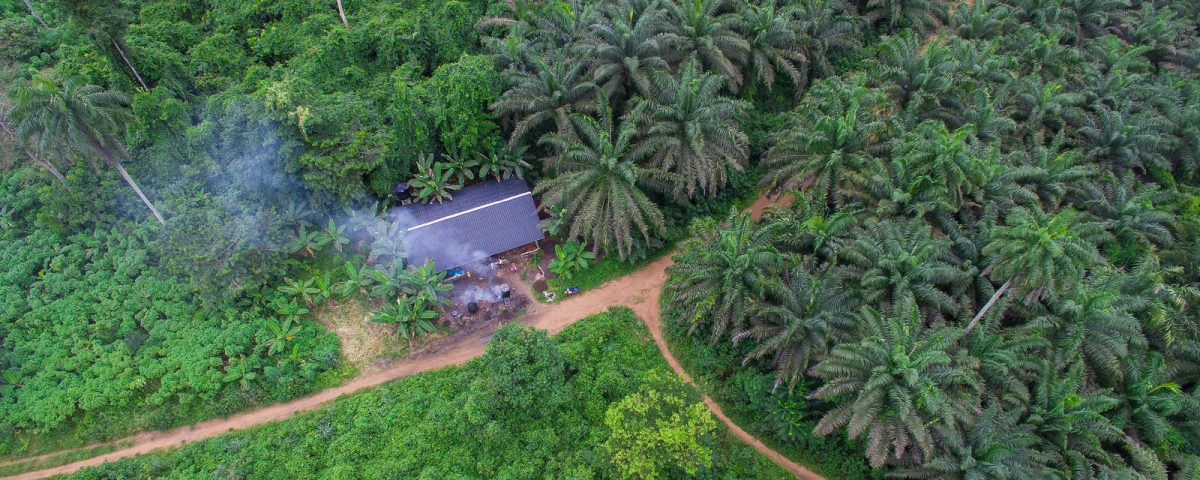
[Policy Brief] Developing a Peace and Security Infrastructure in Abia State
November 4, 2020
[Policy Brief] Adopting a Demand-Led Approach to tackling Unemployment in Abia State
November 5, 2020
By Oteheri Akinruntan
Background
Land, which is central to the economy, social and political spheres of community, society, and the nation at large is regarded as a crucial asset. It is the most important economic resource, most particularly for developing countries with a largely rural population and most people earn their living through agriculture. It has remained the most important factor of production since the creation of man and a fundamental factor of production in the agricultural sector all over the world. It provides a basis for crop production in Nigeria as a whole and Abia State in particular.
There has been some anecdotal evidence that smallholder farmers in the crop value chain in Southern Nigeria do not have adequate access to arable land for increased production. The evidence shows that differences in land access of smallholders are large, resulting in significant differences in production, income, and wealth. Instances where they are allowed to expand their farming practices, then they are allocated land in virgin forests, and consequently faced with the challenge of the high cost of clearing and preparing the land for cultivation.
In Abia State, farming households, whose livelihood is partly or entirely dependent on agriculture and based on a traditional production system, land plays a pivotal role in shaping and directing livelihoods. In most communities in the State, the land is, therefore, the basis of agriculture production and the most important production factor for farmers. It is the most important asset, particularly in poor communities where wealth and survival are measured by control, and access to land.
Secured access to productive land is critical to thousands of poor living in rural areas of Abia State and who depend on agriculture, livestock, and forest for their livelihood. It will reduce their vulnerability to hunger and poverty; influence their capacity to invest in their productive activities and the sustainable management of their resources; enhance their prospects for better livelihood and helps them to develop more equitable relations with the rest of their society, thus contributing to peace and sustainable development. Irrespective of these, evidence shows that the land size and productivity per a given plot are decreasing in Abia State whereas, the needs to satisfy household demand are increasing which could be explained with fundamental economic questions about production and population. This paradox leads to the question of how the farm households meet their demands under limited and declining trends in productivity while ensuring sustainable land-use systems.
The issue of land use and associated natural resources are some of the pressing socio-economic problems in Abia State. These issues stem from deep-rooted traditional systems of assessing land access and use combined with livelihood activities associated with other surrounding natural resources. Also, in the State, access to land emanated from the traditional open regime. Here, increasing demand for land, formalization process of rural ownership, and access occurring since decades of long-standing traditions of agricultural extensification practices. Consequently, smallholder farmers in Abia have experienced unwise population induced agricultural intensification practices, resulting in decreasing land productivity.
A recent study on farm level determinants, of access to land by arable farmers, in IKWUANO Local government area of Abia State, used multi-staged sampling techniques to examine eighty crop farmers from four communities, It found that communal land ownership and male dominance were identified as a major constraint to access to land for arable crop farming[1]. The study showed that the majority of the lands for arable crop farming are owned or acquired through inheritance. Other factors accounting for inadequate access to land for arable farming are interrelated and include;
- Articulation of policy framework on arable land: There seems to be a lack of policy backing on the issues of land. The government has reserved land for implementation of agricultural programs for the present and future use which are not as inclusive to accommodate the concerns of smallholder farmers.
- Cultural factors within the bounds of traditional institutions: the practice of allocation of land should be more inclusive and structured. This practice is largely responsible for the fragmentation of farmland which has a limiting effect on adoption of best farming practices
- Poor response of government agriculture programs to respond to the issue of land for farmers in agricultural schemes. Lack of willingness of the government to interface with communities to implement programs that would increase access to land instead of most government programs requires farmers to have land and they make provisions for input.
The study recommended the strengthening of relevant institutions to enable farmers to access required land for arable crop farming without gender without disparity.
Policy Points
Agriculture is the mainstay of Abia State’s economy and given that a considerable percentage of the farmers are smallholders, a lot more needs to be done to expand the sector. Based on the identified constraints to accessing land for smallholder farmers, the policy focus should recognize, in the first instance, agricultural-based livelihood strategies and activities of smallholders and the implication of land use. The recommended policy direction to consider are :
- Carryout GIS mapping of arable land: to fully appreciate the growing issue of inadequate access to land, the State government needs to carry out a comprehensive land mapping and inventory of agricultural lands towards developing land information. This would guide decision making on land-related issues as affects farming. It would also provide information that can be made public to enable potential investors to access data on the available arable land and possible mainstreaming of smallholder farmers in out-growers schemes.
- Review traditional land allocation systems: The system of traditional land allocation that is dominant in the state has contributed to the challenge of availability of land for smallholder farmers. State government should begin to collaborate with the community leadership to review the traditional systems of land distributions and support communities in opening up land for expansion of agricultural activities. By so doing, influence increased access to the majority of individual farmers who contribute to the economic growth of the State through agriculture.
- Open land and design allocation system: Government encroachment has been identified as one of the major constraints to available land in some communities. There is anecdotal evidence by some communities that the choice of land is reserved by the government. Abia State government should provide policy direction around the opening of such reserved land for agricultural purposes pending when they are ready to implement the programs that those portions of land are earmarked for. Fertile land should not lie fallow when they could be used to boost agricultural income for the State. The release of such government reserved lands could also be used to facilitate and encourage new entrants into the agriculture sector. The government should design some agricultural programs that would address the issue of land as against the current practice of providing input to farmers who do not have adequate land to implement or effectively utilize the land.
- Mainstream gender equity in the land distribution systems: The government should carry out a needs assessment for smallholders’ farmers and marginalized groups within communities. This is to facilitate a better understanding of the constraints and address the issues militating against increased access. The government could also influence industrial agro-allied companies to effectively mainstream smallholder farmers in their agricultural programs or schemes. There should be targeted efforts to support women and other marginalized groups in accessing land.
- Local Government Council should grant land-use rights: to both men and women in rural communities to improve their access and use of land for agricultural purposes.
- Policy to boost agriculture extension services: in rural areas as farmers who more educated and informed will have more access than otherwise required.
- Encourage the formation and membership of groups: to promote and enhance women purchasing power through access to credit, and common voice in assessing communal lands.
[1] See Onya S.C, Ugochukwu G.C and Ejiba I.V; “Farm level determinat of access to land by arable crop farmers in Ikwuano Local Government Area of Abia State”: Agro-Science Journal of Tropical Agriculture, Food, Environment and Extension. Vol 18 Number 1 (January 2019) Pg 50-55.
______________
Oteheri Akinruntan is a member of PIND Foundation’s Advocacy Team









